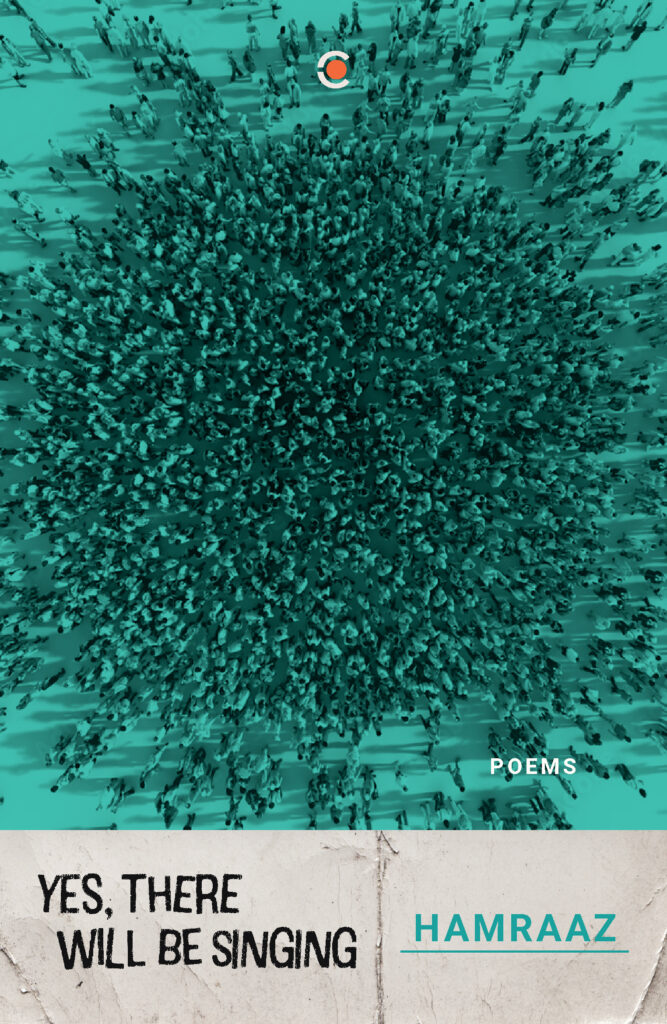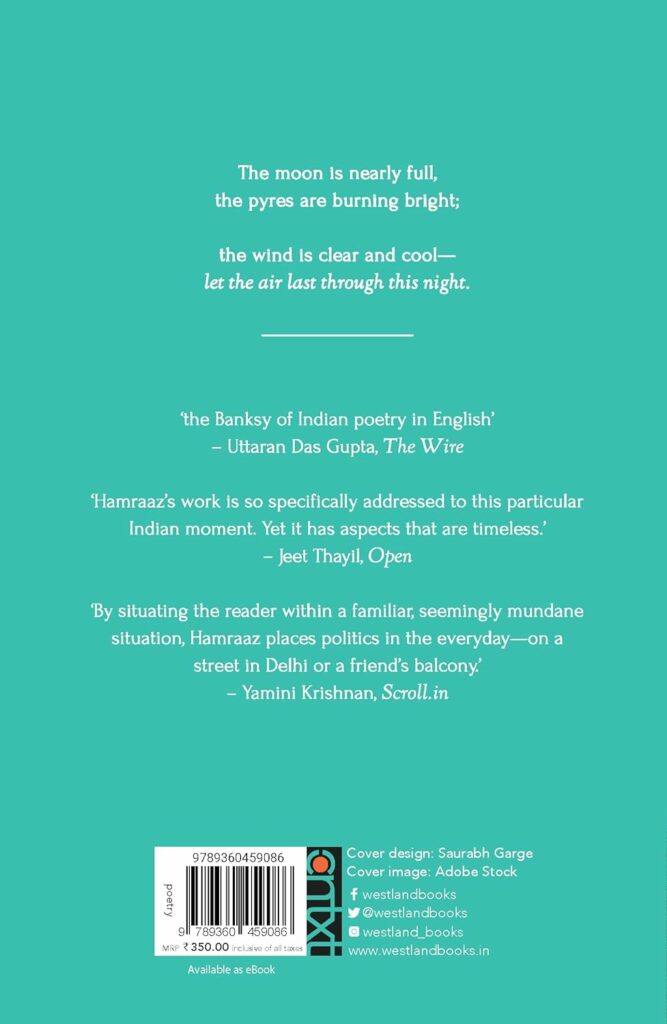If you’re looking for my latest poems, check the side menu or go here. Also, please consider picking up a copy of my book, recently released by Westland-Context.
Yes, There Will Be Singing is a collection of poems from the early days of the dark times we are currently living through. It’s poetry, so I hope it will be judged on those terms. But it is also an act of protest, and a kind of history from the abrogation of Article 370 to the ongoing imprisonment of political prisoners. It covers the resistance to the CAA/NRC, the first farmers’ protest, the Covid Disaster, and more. This is not ‘art for art’s sake’, it’s art as an argument for a politics of love and solidarity.
Writing in Outlook, Saurabh Sharma callsYes, There Will Be Singing , ‘a perfect blow to the state-sponsored oppression’. You can find early reviews in the press and publications page of this site. I hope you’ll go looking for it in your local bookstore, or will order a copy online (so far, I see it on Champaca, Eureka Bookstore and the big one of course). I hear friends have found copies in bookshops in Delhi and Bangalore so far.
All of the poems first appeared here, but many have been reworked, with the help of friends I met on line and the wonderful team at Westland. I’ll make sure any procedes from the book go to good causes. But my real hope is that these poems get out in the world and get people thinking about what kind of world we want to make-together. Though I can’t do readings in support of the book, we hope there will be a public launch. In the meantime, I’m hoping many of you will help by reading and sharing poems from the book, but also other poems of resistance. I’ll update more soon, but you can get some ideas about how you can help on this page. And to get on my mailing list subscibe here.
Readers have started sending their readings of poems from the book; I’ve posted the first few here.

